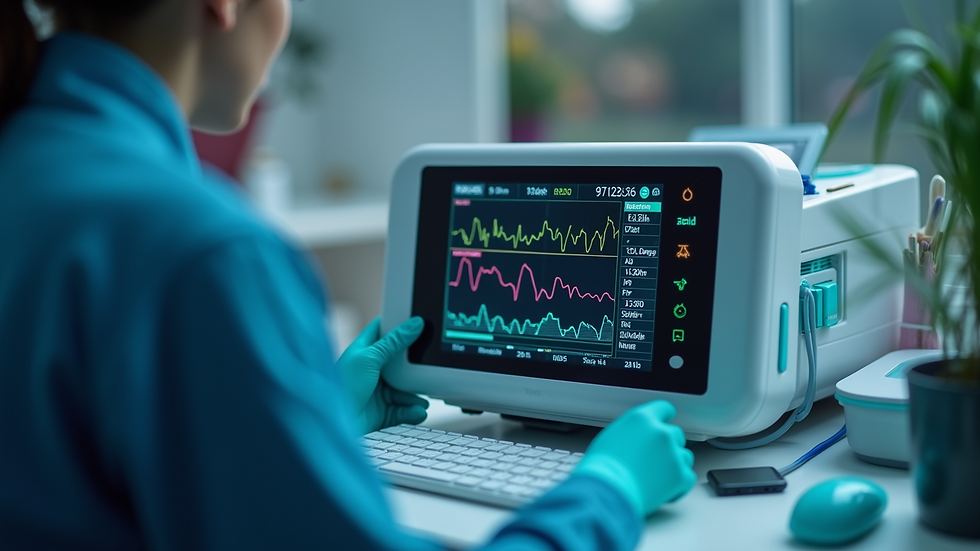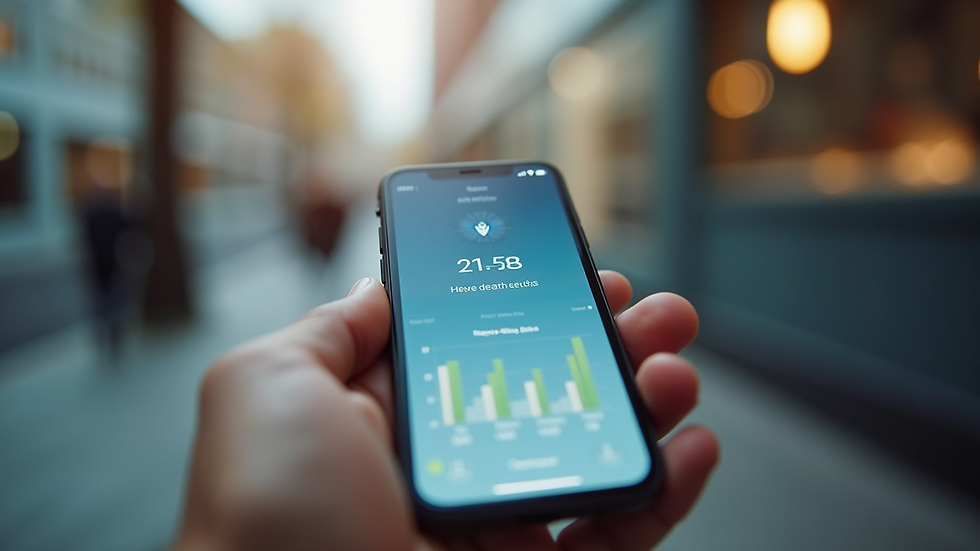Innovative Approaches to Mobile Healthcare Access
- Robert Pierre Louis
- Jul 21, 2025
- 4 min read
The world of healthcare is evolving rapidly with the advancement of technology. Mobile healthcare solutions are at the forefront of this transformation, providing innovative ways to improve access to medical services. From telemedicine to health apps, the focus is on enhancing patient care and efficiency. This blog post explores innovative approaches to mobile healthcare access and how they are positively influencing the health of communities worldwide.
Mobile Healthcare Solutions
Mobile healthcare solutions encompass a variety of applications and services designed to improve healthcare delivery. These solutions utilize mobile technologies to connect patients to providers in new and effective ways. With tools like health monitoring apps, telehealth services, and remote patient monitoring devices, healthcare professionals can deliver care anytime and anywhere.
For instance, a recent study revealed that telehealth services have increased healthcare access by 30%, particularly for people living in rural or underserved areas. This dramatically reduces the need for travel and allows patients to receive care from the comfort of their homes. As mobile healthcare solutions continue to evolve, we can expect even more efficient methods for delivering care.

Bridging the Gap in Rural Healthcare
One of the most significant challenges in healthcare is ensuring access to quality services, especially in rural areas. Mobile healthcare solutions bridge this gap by offering telemedicine options that connect practitioners with patients over long distances. In regions with few healthcare facilities, telehealth gives patients access to consultations, treatment plans, and follow-ups.
For example, several initiatives have been implemented across the United States, providing mobile clinics equipped with telehealth technology. These clinics travel to remote areas, allowing residents to engage with health professionals through video consultations. This innovative approach not only improves access to healthcare but also fosters a stronger patient-provider relationship.

What are Access Services in Healthcare?
Access services in healthcare are designed to remove barriers that prevent individuals from receiving the care they need. These services can include transportation assistance, interpretation services, and telehealth options. The goal is to ensure that every patient can engage with the healthcare system, regardless of their circumstances.
The importance of access services cannot be overstated. They play a crucial role in increasing the utilization of healthcare services, improving health outcomes, and reducing disparities. For instance, studies have shown that patients who have access to language interpretation services are more likely to attend their appointments and follow treatment recommendations.
The Role of Mobile Apps in Patient Engagement
Mobile applications have revolutionized patient engagement by providing tools for self-management and education. These apps range from medication reminders to platforms that facilitate communication between patients and healthcare providers. By empowering patients to take charge of their health, mobile apps promote better health outcomes.
A prime example is an app designed for managing diabetes. Users can log their blood sugar levels, set reminders for medications, and connect with a healthcare professional for advice. Reports indicate that patients using such apps have improved their adherence to treatment plans by 25%. When patients are engaged, they are more likely to achieve better health outcomes.

Telehealth: A Lifeline During Crises
Recent global events have highlighted the importance of telehealth. When healthcare systems faced overwhelming challenges, telehealth emerged as a critical lifeline. It allowed providers to continue offering services while adhering to social distancing measures.
During the COVID-19 pandemic, telehealth usage surged, with reports indicating a 154% increase in telehealth visits in just a few months. This rapid adoption of mobile healthcare solutions not only ensured continuity of care but also highlighted the model's effectiveness. As a result, many healthcare providers have committed to maintaining telehealth services even as in-person visits resume.
The flexibility and convenience offered by telehealth will likely lead to its permanent integration into healthcare systems moving forward. It serves as a testament to how innovative approaches can reshape the future of healthcare.
The Future of Mobile Healthcare Solutions
Looking ahead, mobile healthcare solutions will continue to evolve, integrating artificial intelligence and machine learning for more personalized care. These technologies can analyze patient data to predict health issues before they arise, enabling preventive measures to be taken earlier.
Additionally, wearable devices are becoming more sophisticated and can monitor various health parameters in real time, transmitting data directly to healthcare providers. This increases the potential for proactive care and reduces the likelihood of hospitalizations.
Communication will also continue to improve as mobile healthcare solutions develop, making it easier for patients to interact with their providers. Real-time consultations and instant messaging features within health apps may become standard practice, further enhancing the patient experience.
As healthcare access becomes a priority, innovative mobile healthcare solutions will play a crucial role in transforming how care is delivered. By leveraging technology, we can create a more effective and equitable healthcare system that meets the needs of all individuals, regardless of their location or circumstances.
In summary, the mobile healthcare landscape is changing rapidly. Innovative approaches are improving access to care and empowering patients to manage their health more effectively. As we embrace these solutions, we move closer to a future where everyone can benefit from quality healthcare. To learn more about how to improve healthcare access in your community, explore the resources available to you.















Comments